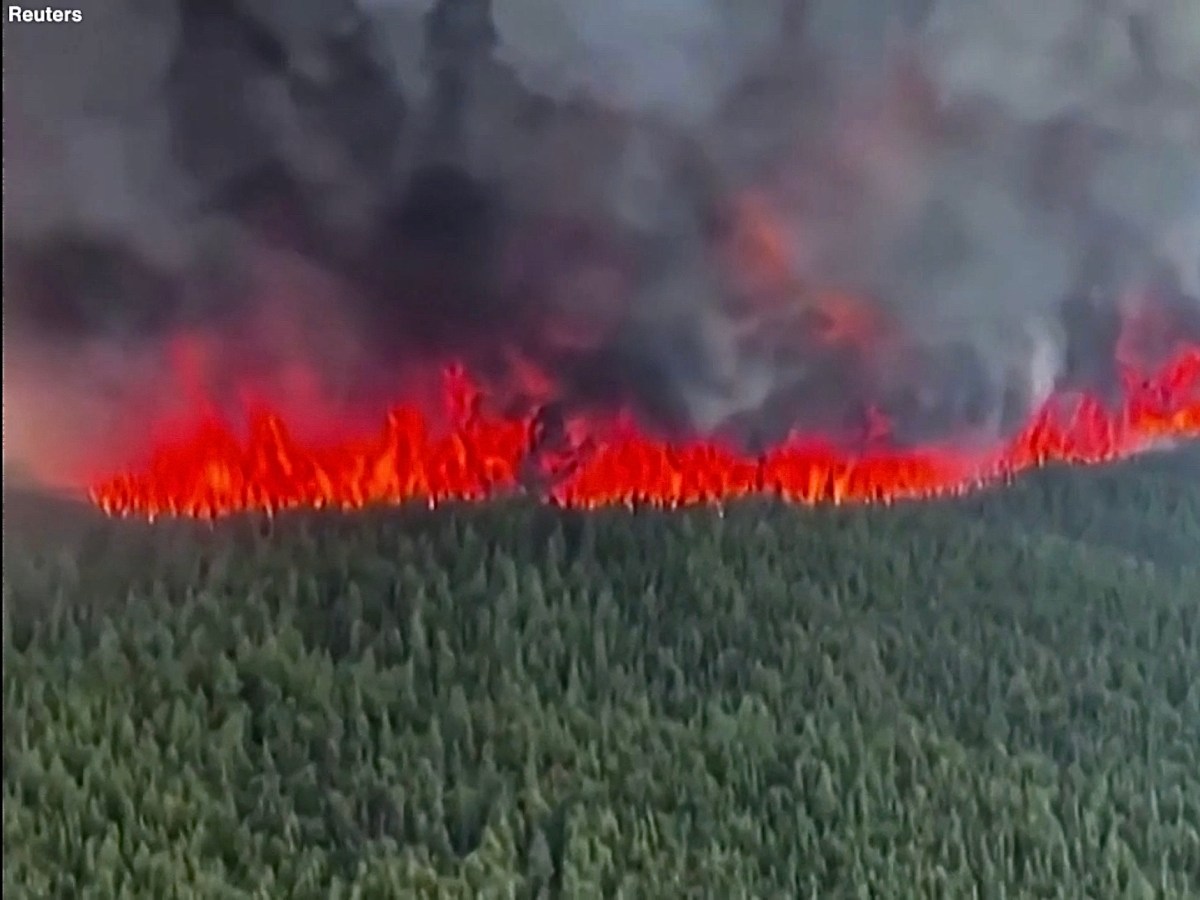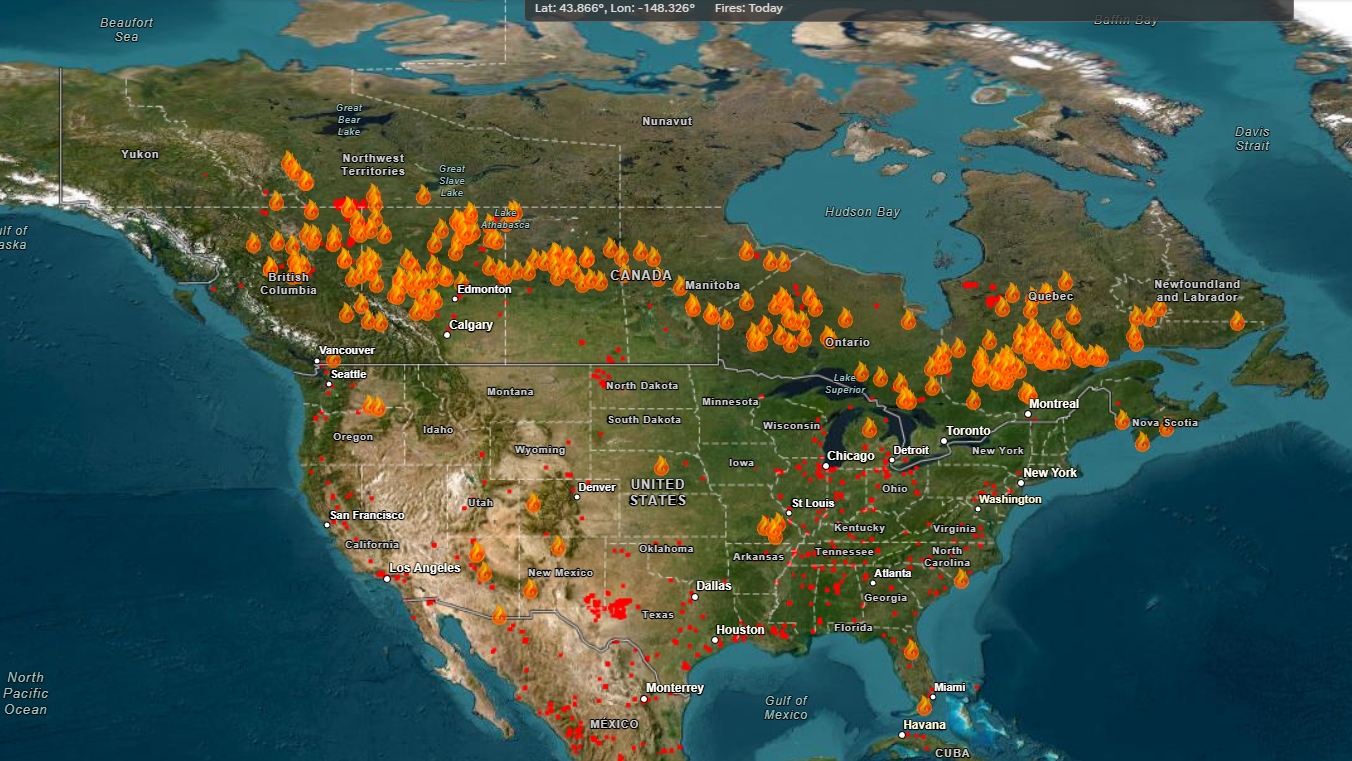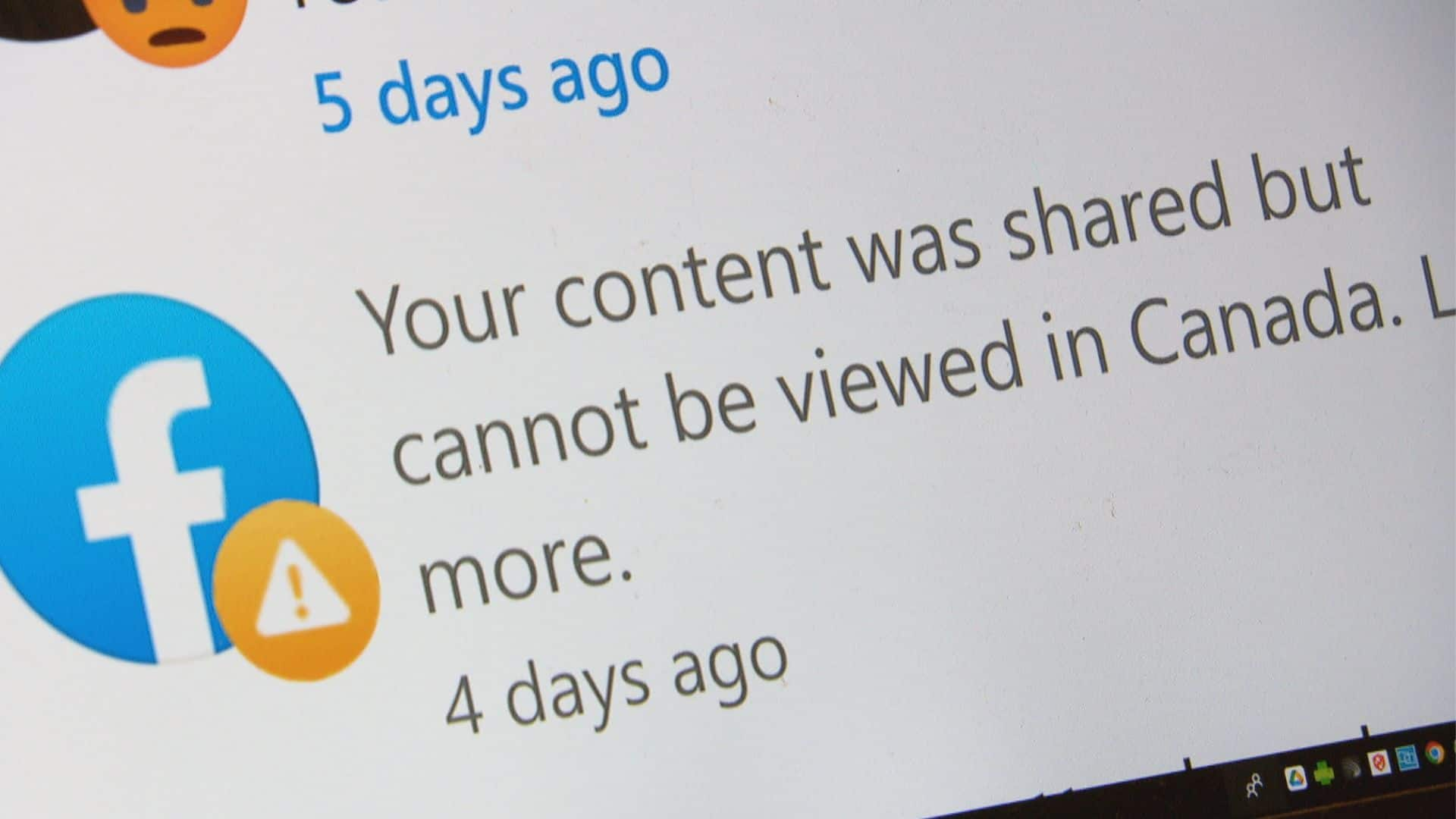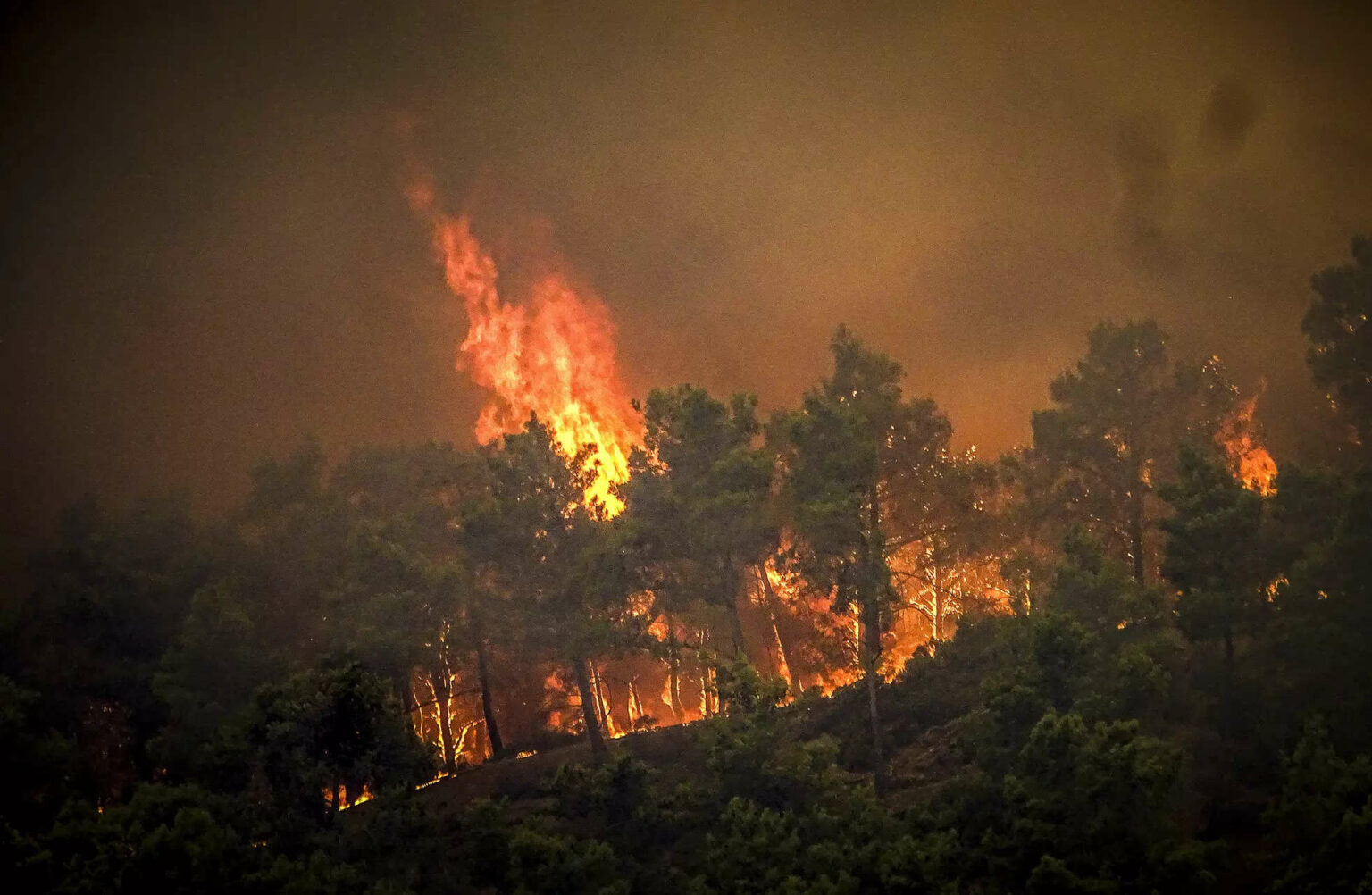
Canada’s British Columbia has declared a state of emergency to combat raging wildfires that have swamped the picturesque city of Kelowna. About 15,000 people have been told so far to leave their homes as stated by the Minister of Emergency Management.
Residents and tourists have been informed to evacuate Yellowknife, a city in the North-Western territories of Canada. British Columbia’s Premier David Eby said at a press conference that this has been the worst wildfire season in the history of the province and has urged all residents to follow the evacuation orders as days ahead are certainly difficult.

As of Saturday, 26,000 acres of land has been burnt despite all the desperate overnight efforts to battle the wildfires. Mike Westwick, fire information officer, said that the predicted winds from the north and northwest could further push the fires into directions which the authorities will find difficult to control. Shane Thompson, the province’s environment minister said that it is not safe to return to Yellowknife as fires are still burning deep inside the forest as the city officials have warned of warmer temperatures in the coming days.
According to Jason Brolund, chief of the West Kelowna fire department, some of the first responders got trapped while evacuating people who failed to rescue themselves, describing how they had to jump into lakes to avoid getting caught by the flames. Officials have said that roads would stay open. Gas stations that still had fuel left in them were open on Friday morning with 1 pharmacy store, grocery store and a bar still operating in a city virtually evacuated.
The Canadian Prime Minister Justin Trudeau asked Ministers to ensure that all the communication services are available and that there is no rise in the prices of flights and essential services. Since the announcement of evacuation, more than 19,000 people fled by road or air with just a 1000 people remaining in the area for essential services.
Meta’s News Ban In Canada Prevents Sharing Of Vital Information

Canadian Lawmakers passed a bill in June that required companies to pay news outlets in order for them to share their content. In response, Meta banned Canadian users from sharing or viewing news content online starting from August 1. Canadian Heritage Minister Pascale St-Onge said that Meta’s response of blocking news before the implementation of the Act is preventing Canadians from accessing vital information on Instagram and Facebook. According to BBC, residents have begun sharing partial screenshots of news reports and updates on wildfires.
However, Meta in its response has said that Canadians can use other features to keep themselves wherein they can still access information from government and non- governmental agencies and stay connected to their community.













